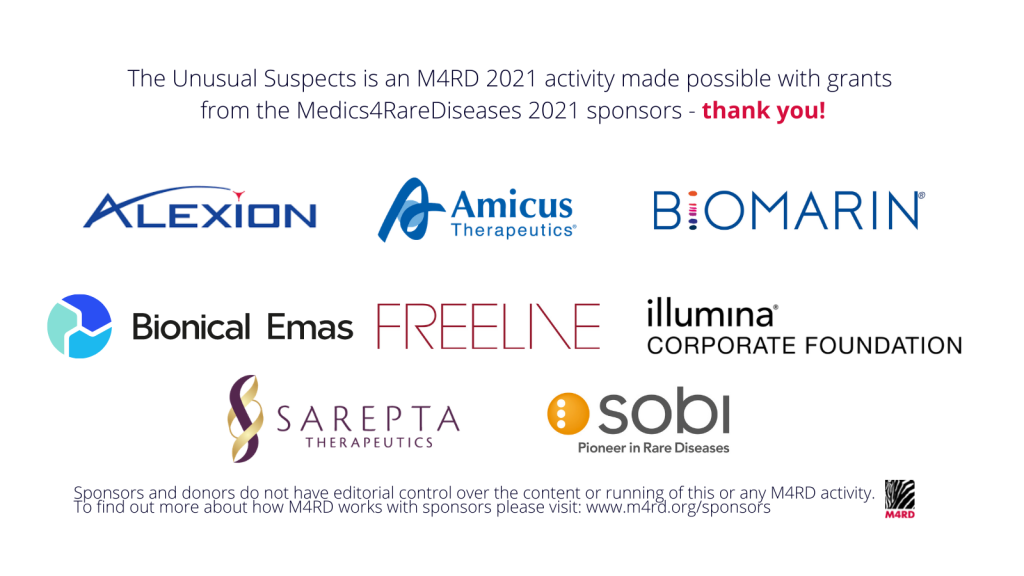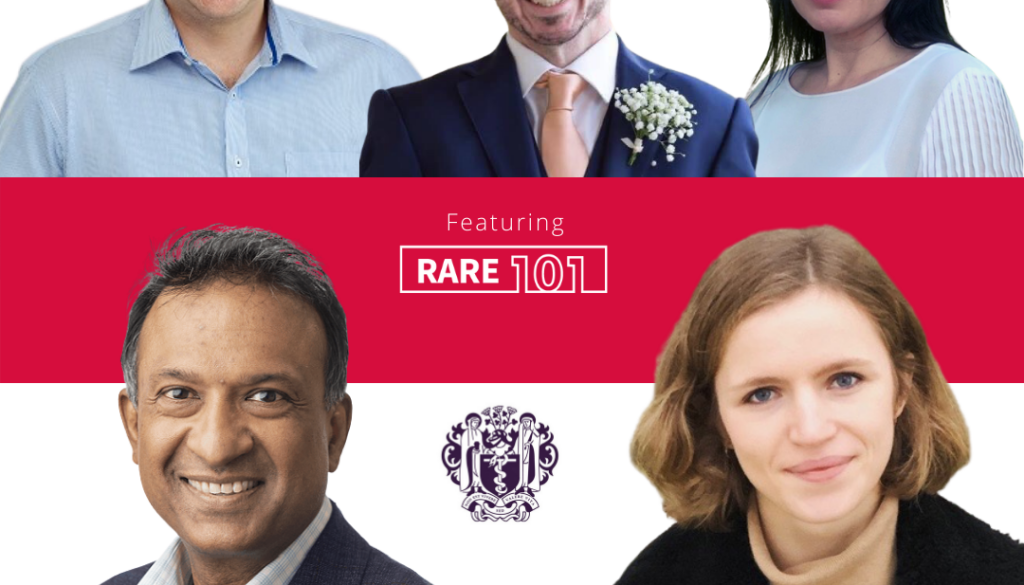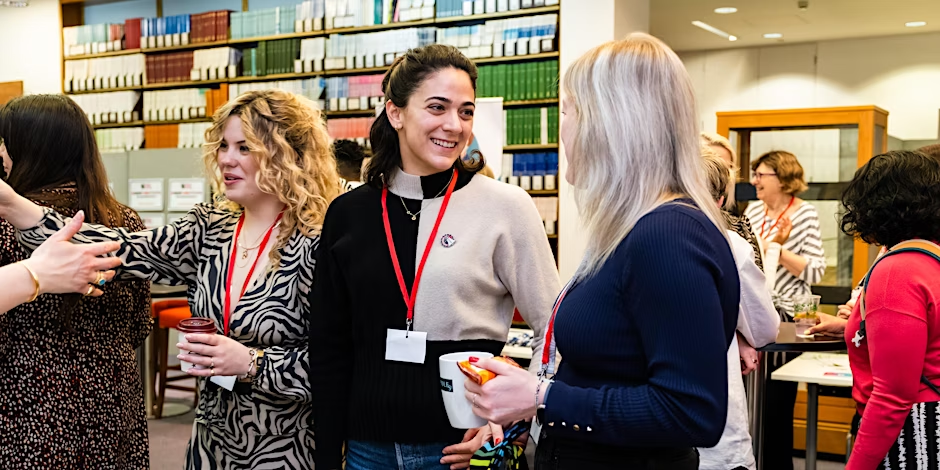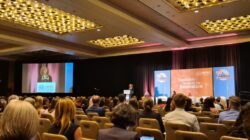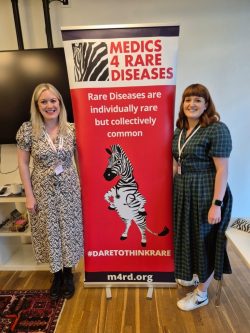The Unusual Suspects: rare disease in everyday medicine
emotive Reviews ‘The Unusual Suspects’
M4RD has continued to work closely with emotive – an independent, award winning global healthcare communications agency. Emotive were greatly involved in helping us bring Rare Disease 101 to life, providing us with both great content and wonderful images.
Senior Account Executive Claire Mitchell, Junior Account Executive Charlotte Roe and Graduate Medical Writer Emily Keizer all attended our annual symposium ‘The Unusual Suspects: rare disease in everyday medicine’ which took place on 24 February. Due to the ongoing COVID-19 pandemic, the event couldn’t take place at the Royal Society of Medicine, so instead it was held as an online interactive meeting.
Attending this meeting has shown me why the work M4RD and emotive do is so important and the impact it can have on the lives of patients and caregiver.
Emily Keizer, Graduate Medical Writer
The M4RD Annual Symposium has been a popular event in the rare disease calendar for many years, allowing healthcare professionals at all levels, trainees and students to come together to learn more about the importance of understanding rare diseases as a whole, with a large focus on improving awareness and management. In previous years, the event has had a UK focus; however, due to the meeting being held virtually this year, the reach has been bigger and has allowed delegates to attend from across the globe.
Rare Disease 101
Dr Lucy McKay played a video to showcase Rare Disease 101 – a free, online, interactive course of e-learning modules created by M4RD, aimed at medical professionals in the early stages of their careers to educate them on the fundamentals of rare diseases. She explained how the series of modules helps to address some of the issues highlighted in the UK Government rare disease framework, specifically increasing awareness of rare diseases amongst healthcare professionals. Rare Disease 101 has been worked on by rare disease experts and organisations, including emotive who have supported M4RD with the development of this project.
Y and How
The first talk was given by Dr Gareth Baynam, a clinical geneticist from Australia who focused on “Y and How?”, discussing why healthcare professionals should care about rare diseases and also touching on a wider outlook in terms of finding treatments for rare diseases and how they can have advantages for patients with other illnesses. He shared his thoughts on how to better approach the management of rare diseases and how to raise awareness within the healthcare system and encouraged us all to consider system-wide thinking alongside the idea that one size doesn’t fit all: “we need to utilise different approaches and be more agile in order to improve the doctor–patient relationship and speed up the journey to diagnosis”.
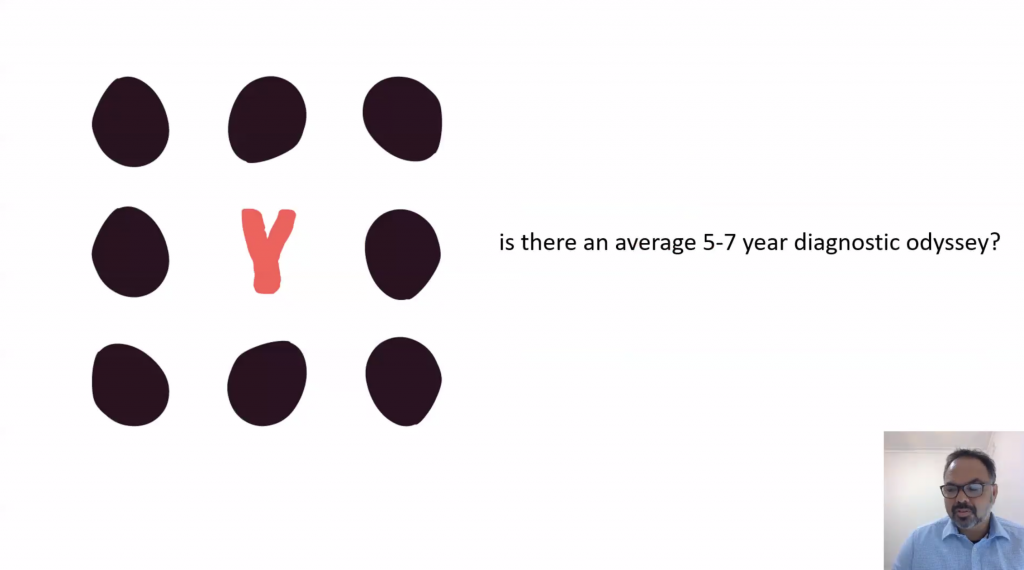
It was amazing to hear from such a range of speakers covering many aspects in the rare disease space
Claire Mitchell, Senior Account Executive
The Importance of Learning from Patients and Advocates
Claire was particularly moved by the presentation from Georgina Morton from the ArchAngel MLD Trust who discussed her experiences from a parent’s perspective and shared valuable insights on the process of finding a clinical trial for her daughter, Ava.
Listening to Georgina’s story was particularly moving and highlighted the value that RD101 can bring to doctors, patients and families in the future.
Charlotte Roe, Junior Account Executive
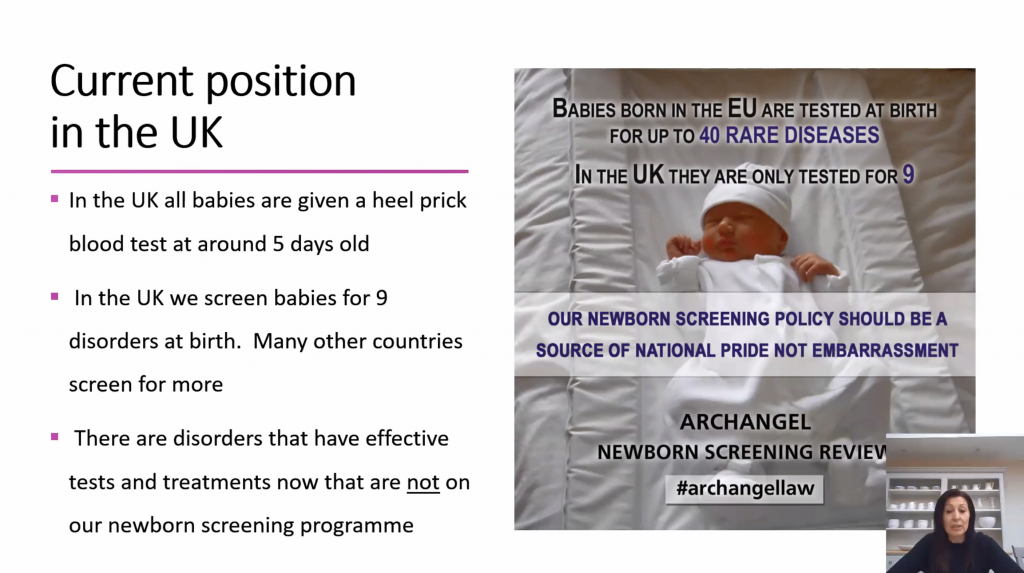
Georgina summarised her talk by sharing the work that ArchAngel MLD Trust are doing to raise awareness among GPs, encouraging them to question the warning signs. She also gave an insight into the work the ArchAngel MLD Trust are doing in the campaign to push for a more in-depth newborn screening programme for all children in the UK.
Harnessing the power of gene therapy
Following on from Georgina’s talk was a talk by Prof. Bobby Gaspar, Honorary Clinical Professor at Great Ormond Street Hospital and the UCL Institute of Child Health and CEO of Orchard Therapeutics. Prof. Gaspar spoke about his work with haematopoietic stem cell (HSC) gene therapies and his ambition to find a treatment for MLD, sharing his insights into MLD as a disease.
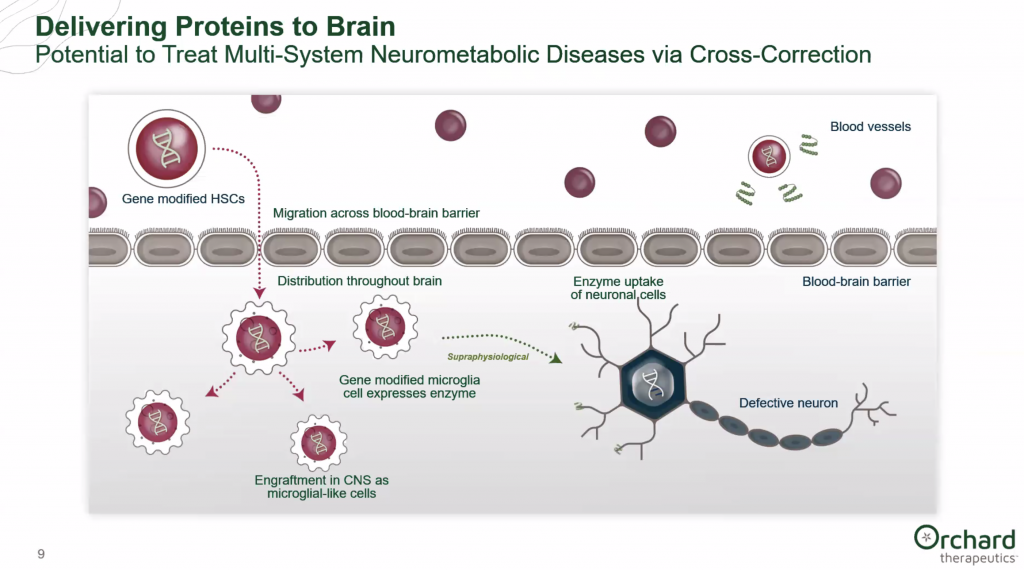
I am number 17
Abie Epstein and David Rose gave a talk on the “I am number 17” campaign. Abie from Takeda and David, a person living with an ultra-rare disease and an advocate at Rare Revolution magazine, started off with a brief video outlining the objectives of the campaign which focuses on 17 ‘changemakers’, whose aim it is to show that although people may have had very different experiences reaching their diagnosis, there are still so many shared challenges that people who live with rare diseases face. David touched on what his experience of getting a diagnosis was like and the impact this can have on a person’s life.
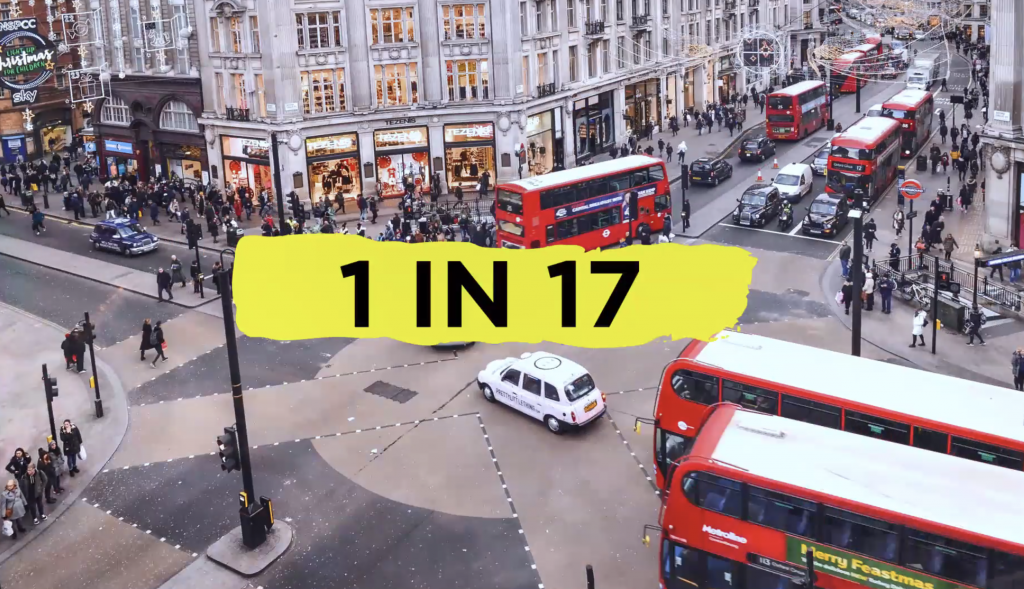
Hearing the experiences of people living with rare diseases really emphasises why it is so important to continue to raise awareness of rare diseases and the importance of patient groups working with healthcare professionals on this issue. Attending this meeting has shown me why the work M4RD and emotive do is so important and the impact it can have on the lives of patients and caregivers.
Emily Keizer, Graduate Medical Writer
Living with a rare disease during a pandemic
The final speaker was the winner of the 2020 Student Voice prize, Catriona Chaplin§, who spoke about her essay “Unmasked: An insight into three patients with rare disease in the COVID-19 pandemic”. Catriona discussed what it was like to talk to three people who have been diagnosed with or care for someone with mastocytosis and reflected on the challenges faced as a result of the COVID-19 pandemic.
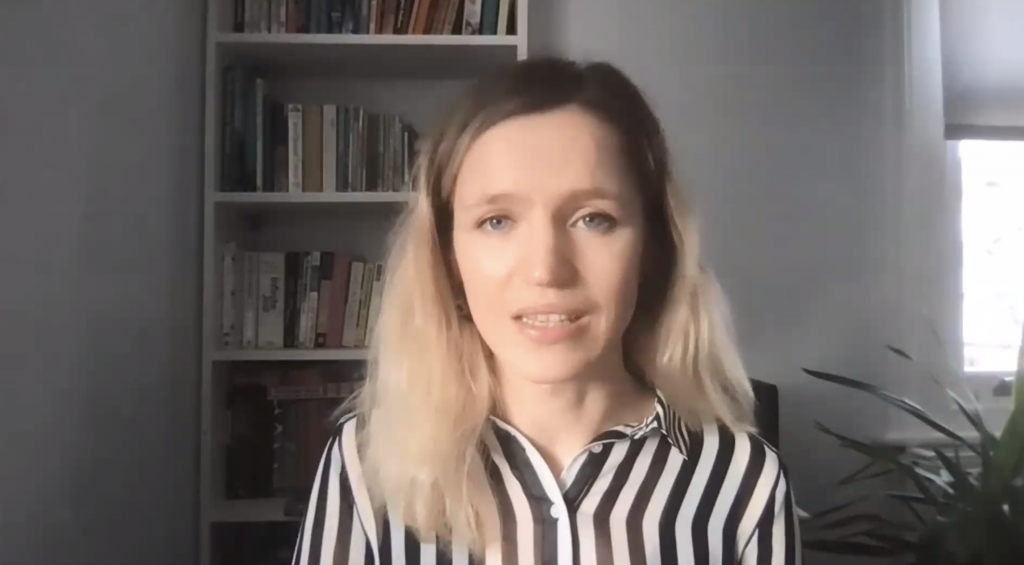
Two panel discussions took place during the meeting, led by Dr Lucy McKay, reflecting on what had been said throughout the previous presentations and answering any questions raised by the participants. Topics discussed included the importance of healthcare professionals knowing their limitations and how patients can properly benefit from support groups. There was overall agreement that the greatest tool that can be used by healthcare professionals is their ability to listen.
Hearing directly from people whose lives have been affected by rare diseases, whether it be by themselves like David or a family member like Georgina, is hugely important in helping us understand the impact of rare diseases on people’s lives. The personal touch that M4RD add complements information from experts like Prof. Gaspar and really motivates me to get up every day and put every ounce of effort into the work that I am producing for M4RD and for my other clients in the rare disease space.
Charlotee Roe, Junior Account Executive
Read the Full Review
Thank you to everyone who spoke at and attended ‘The Unusual Suspects: Rare disease in everyday medicine’. M4RD will be back at the Royal Society of Medicine in February 2022.
You can read emotive’s full report from the event below.
https://thinkemotive.com/newsfeed/the-unusual-suspects-report
Thank you to the M4RD 2021 Sponsors for making this event possible
